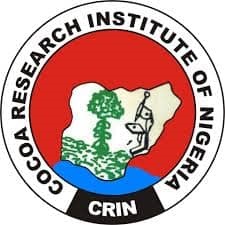Despite supplying 70% of cocoa beans, W/Africa gets $6bn of $150bn chocolate value
Researchers and industrialists have said efforts should be made to revive cocoa processing companies and woo more investors into the value chain to maximise benefits of cocoa production through emphasis on local consumption.
According to a report published by Allied Market Research, the global cocoa market garnered $12.87b in 2019, and is estimated to generate $15.50b by 2027. The increase in demand for chocolate worldwide has been fueling the global cocoa market growth.
Reports also indicate that although the global chocolate industry is valued at over $150bn, West Africa, supplying about 70 per cent of cocoa beans, receives less than $6bn (four per cent) of the market value.
This follows that 80 per cent of cocoa market revenue is generated at the secondary processing stage, which is dominated by Europe and Asia, and it is the area where massive potential lies and where African cocoa bean producers need to invest in. Hence, emphasis must be placed on value chain development, local processing, consumption of cocoa-based products and exports of finished products.
The Director-General of the Raw Material Research and Development Council (RMRDC), Prof. Hussaini Doko Ibrahim, explained to The Guardian that cocoa is processed into chocolate, liquor, cocoa butter and cocoa powder and these products are now increasingly used in pharmaceuticals, bakeries, food and beverages, nutraceuticals, cosmetics and toiletry industries.
Explaining the global surge in demand for the products, he said the nutritive value of cocoa and health benefits are major factors boosting the surge in demand.
“It is one of the major sources of polyphenols, which are naturally occurring antioxidants. Polyphenols have numerous health benefits, including reduced inflammation, blood pressure control, improved cholesterol and blood sugar levels. Polyphenols reduce the risk of neuro-degenerative diseases.
“Cocoa also contains flavanols, which have potent antioxidant and anti-inflammatory effects. Flavonoids improve nitric oxide levels, leading to lower blood pressure and reduce the formation of Low Density Lipoprotein, which is the main causes of cholesterol problems.”
He added that flavanols have a blood thinning effect similar to aspirin and are linked to a lower risk of heart attack, heart failure and stroke.
“Some studies have shown that a higher intake of flavanols can result in a lower risk of type 2 diabetes. Apart from the cancer protection properties, theobromine and theophylline contents of cocoa also reduce the incidence of asthma,” he added.
Supporting the view, the Executive Director, Cocoa Research Institute of Nigeria (CRIN), Dr Patrick Adebola, said the best thing to do is to promote local consumption because the country cannot continue to have a product which price is dictated by external buyers.
“Nigeria has about 200 million people and we consume chocolate and beverages made from cocoa. Why don’t we encourage local consumption? Nigeria is a huge market if we can start from primary schools.
“We can incorporate cocoa products into the school feeding programme. We know all the benefits of consuming cocoa-based beverages. If we start to encourage local consumption, the demand for cocoa will go up. This will definitely have impact on revival of the local industries as well as increase in productivity,” he said.


